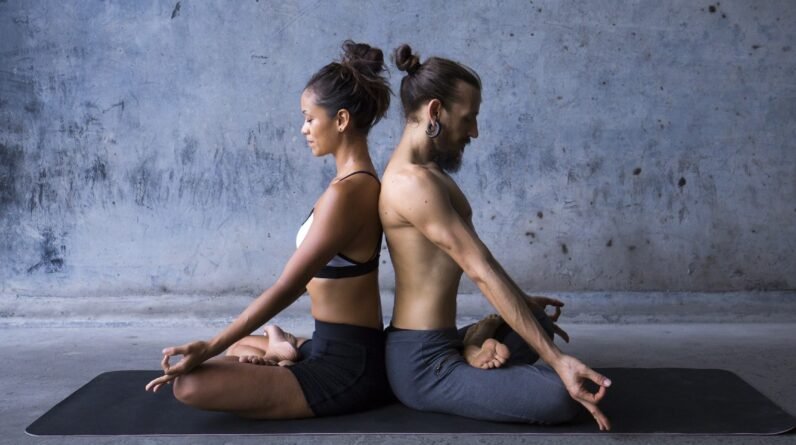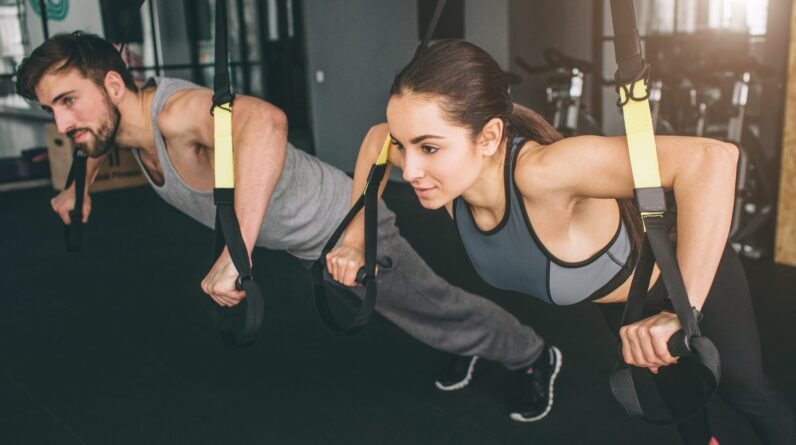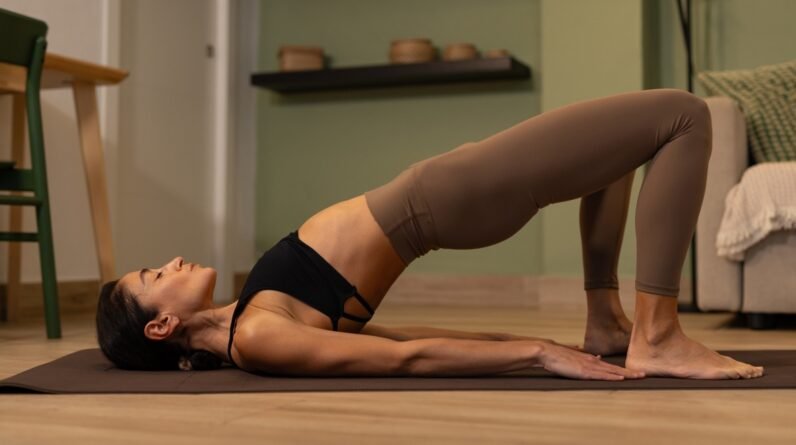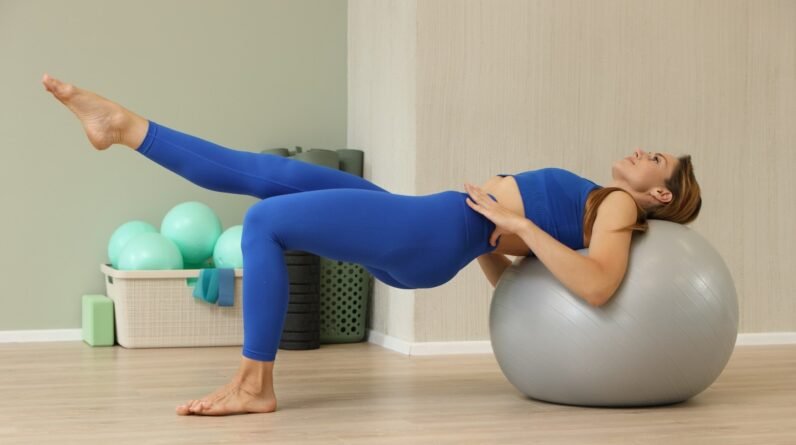
Feeling the Monday blues? Following a morning yoga routine can help alleviate stress, boost energy, and improve your focus.
Mondays can be a drag, but a simple yoga routine may change your mornings and set a positive tone for the rest of the week. Start the day with a few easy stretches and deep breaths to wake up your body and mind. A sun salutation sequence, or flowing set of poses, is an excellent method to energise your body and improve your mood. To relax your mind and lessen tension, try including a few seated meditation poses, such as the easy pose or lotus pose. Combine them with deep, rhythmic breathing for increased relaxation and mental clarity. Even a short daily yoga routine can make a significant difference in your overall well-being. So, roll out your mat, tune into your breath, and let yoga help you overcome the Monday blues.
How morning yoga routine help to overcome Monday blues?
A morning yoga routine can be an effective way to combat the Monday blues. Yoga, which incorporates gentle stretches, flowing movements, and mindfulness methods, helps to reduce stress, enhance mood, and boost energy. Moving through the poses releases muscle tension and stimulates circulation, which can help alleviate physical discomfort and weariness, as found in a study published in the International Journal of Yoga.
Deep breathing exercises and meditation can improve relaxation and mental clarity, allowing you to start the week calm and focused, as found in a study published in the journal Frontiers Physiology. Prioritising self-care and beginning your day with a positive practice will help you beat the Monday blues and set the tone for a productive and fulfilling week.
Morning yoga routine: How to kickstart your day to beat Monday blues?
Mondays can often feel like a drag, but a simple yoga routine can transform your mornings and set a positive tone for the entire week. Here’s how, as suggested by yoga expert Himalayan Siddhaa Akshar.
Warm-up: 1. Child’s pose (Balasana)
- Kneel on the floor, and bring your big toes together.
- Sit back on your heels, folding forward.
- Rest your forehead on the floor and extend your arms forward.
2. Cat-cow pose (Marjaryasana-bitilasana)
- Start on your hands and knees, ensuring your wrists are directly under your shoulders and your knees are under your hips.
- As you inhale, arch your back like a cat, drawing your belly button towards your spine.
- As you exhale, round your spine towards the ceiling, tucking your chin towards your chest.
Cat cow pose: 8 health benefits of Marjariasana

Sun salutations (Surya namaskar)
Sun Salutations are a series of flowing poses that warm up the body and energize the mind. Here’s a basic sequence:
1. Standing forward bend (Uttanasana)
- From a standing position, fold forward, hinging at the hips.
- Let your hands rest on the floor or your shins.
2. Plank pose (Phalakasana)
- Step your feet back, forming a straight line from your head to your heels.
- Engage your core and keep your body lifted.
3. Downward-facing dog (Adho mukha svanasana)
- Lift your hips towards the ceiling, forming an inverted V shape.
- Press your palms into the floor and ground your heels.
4. Cobra pose (Bhujangasana)
- Lower your body to the floor, keeping your hips lifted.
- Press into your palms to lift your chest.
5. Child’s pose
Return to the child’s pose to rest and rejuvenate.
Repeat this sequence 5-10 times, synchronizing your breath with each movement.
You may also like


Seated meditation
1. Easy pose (Sukhasana)
- Sit cross-legged on the floor, with your spine straight.
- Bring your hands to your lap, palms facing up or down.
- Close your eyes and focus on your breath.
- Inhale deeply through your nose, filling your lungs.
- Exhale slowly through your nose or mouth.
Closing pose
1. Corpse pose (Savasana)
- Lie on your back, legs relaxed and slightly apart.
- Let your arms rest by your sides, palms facing up.
- Close your eyes and relax your entire body.
- Stay in this pose for 5-10 minutes, allowing your body to fully relax.

Remember to listen to your body and modify the poses as needed. Regular practice of this routine can help you start your day with a positive and energised mindset.
What to keep in mind if you are starting a morning yoga routine?
While morning yoga is generally beneficial, there are some potential side effects to be aware of:
- Especially if you are new to yoga or push yourself too hard.
- Certain poses, particularly those involving weight-bearing, can aggravate existing joint conditions.
- Improper form or pushing beyond your limits can lead to strains or sprains.
- Certain poses, especially inversions, can cause dizziness, particularly if you have low blood pressure.
- Intense physical exertion or holding poses for too long can trigger headaches.
- Conditions like high blood pressure, glaucoma, or back problems may be worsened by certain yoga poses.
Things to keep in mind!
- Begin with gentle poses and gradually increase the intensity as you gain strength and flexibility.
- Don’t push yourself beyond your limits. If something hurts, stop and rest.
- A qualified instructor can guide you through the proper form and help you avoid injury.
- If you have any physical limitations, modify the poses to suit your needs.
- Allow your body time to recover between sessions.
- By following these guidelines, you can minimse the risk of side effects and maximise the benefits of your morning yoga routine.
Takeaway
A morning yoga routine can be a game-changer for beating the Monday blues. By incorporating gentle stretches, flowing movements, and mindfulness techniques, you can alleviate stress, boost energy, and improve your overall mood. Remember to listen to your body, start slowly, and practice regularly.







